Independent Living
Healthy Eating and Making Things Easier in the Kitchen
Maintaining Health, Independence, and Confidence in the Kitchen
The kitchen is often called the heart of the home, a cosy space for comfort, creativity, and connection. However, for people living with arthritis, mobility challenges, or a disability, everyday kitchen tasks can sometimes seem more like obstacles than sources of joy.
The good news? With a few clever adaptations, thoughtful planning, and supportive products (like our non-slip range), you can bring back pleasure, safety, and independence into your cooking routine.
Cooking with Confidence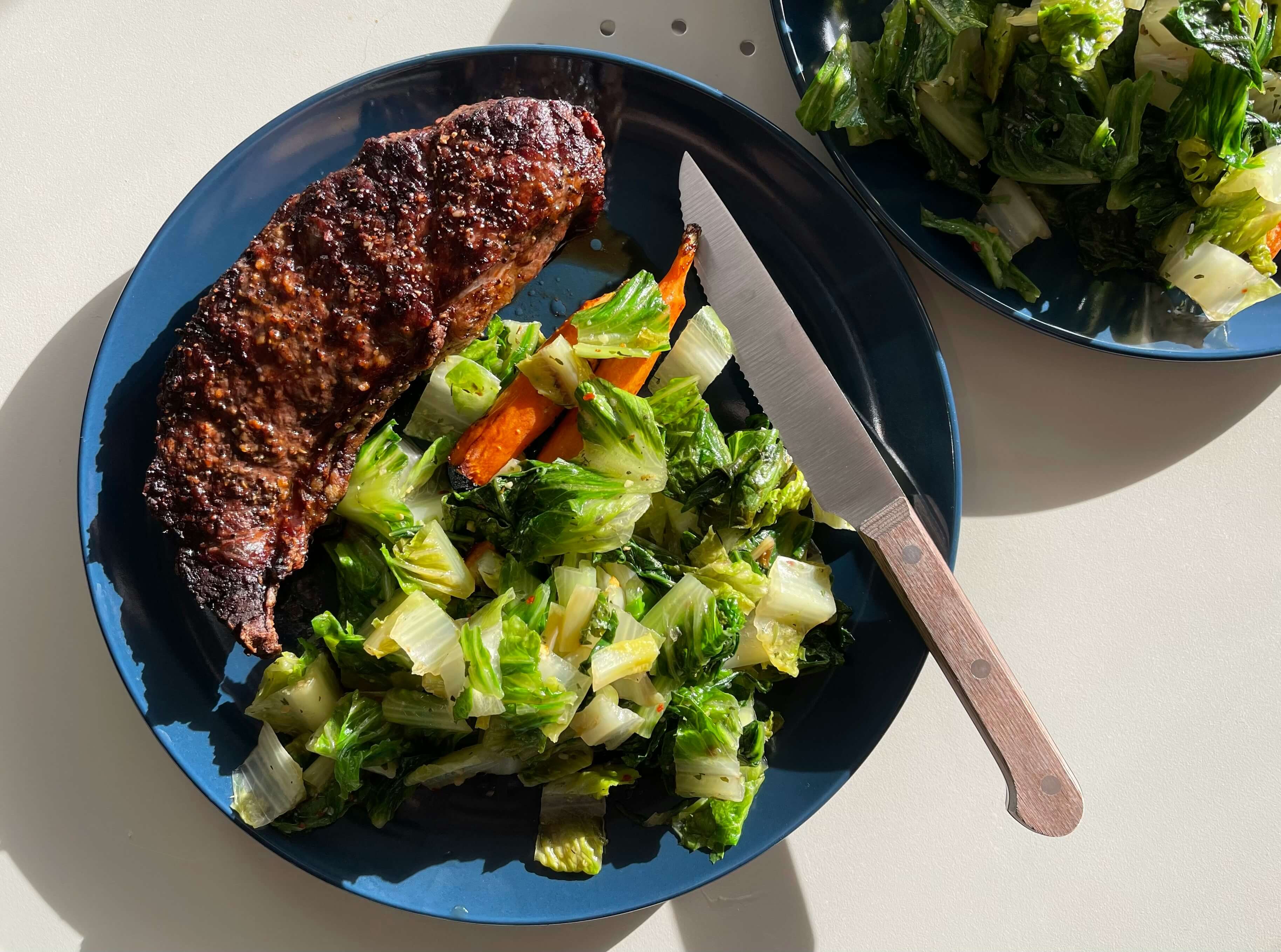
According to Arthritis UK in their article “Arthritis and kitchen hacks: Easy ways to eat well” (2021), preparing meals doesn’t have to be tiring.
The first step is organisation. Keep frequently used ingredients and utensils at waist height to prevent bending or stretching. Where possible, sit down to prepare food, saving energy and easing strain on your joints.
If keeping items stable while chopping or mixing is a challenge, Tenura non-slip mats and anti-slip coasters can hold everything securely. This allows you to concentrate on the recipe rather than the difficulty, making cooking safer and more enjoyable.
Independence in the kitchen often comes from minor environmental adjustments, such as swapping heavy cookware for lightweight pans, using slow cookers to minimise standing time, or adding Tenura anti-slip floor stickers near your sink or stove can make a significant difference. These subtle changes rebuild confidence, lower risks, and help you rediscover freedom in your own home.
Healthy Eating and Disability
A nutritious diet is essential for maintaining independence, energy, and wellbeing. For individuals with limited mobility, carrying extra weight can increase joint pain, cause fatigue, and even impact mental health and motivation. However, eating healthily doesn’t have to be complicated — it’s all about balance, preparation, and accessibility.
Cooking at home lets you control ingredients and portion sizes, something strongly encouraged by Arthritis UK. With Tenura’s non-slip mats, grips, and stabilising aids, everyday cooking becomes safer and easier. When utensils, bowls, and pans stay steady, you save energy and maintain consistency - both essential for a sustainable, healthy diet.
Batch cooking is an excellent way to simplify healthy eating. On days when you have more energy, prepare simple, nutritious dishes such as soups, stews, or salads, then freeze portions for later. Using aids like kettle tippers, ergonomic cutlery, and jar openers can make meal prep much less daunting, especially if you experience fatigue or joint pain.
For more practical tips, Arthritis UK shares guidance on simple kitchen hacks for eating well, this article provides excellent insights for making healthy eating more accessible.
Setting Yourself Up for Success
Preparation is key. Stock your cupboards with essentials, use frozen or pre-chopped vegetables to save time and effort, and keep your workspace organised so you don’t need to move around too much.
Practical steps include:
- Keep commonly used items within easy reach to avoid bending or stretching.
- Use lightweight or double-handled cookware to reduce strain.
- Create a comfortable work zone where you can sit or stand safely.
- Use Tenura’s non-slip mats under bowls and boards, and anti-slip trays or coasters to prevent spills.
Good lighting, clear work surfaces, and simple meal plans can also significantly enhance the ease and enjoyment of cooking.
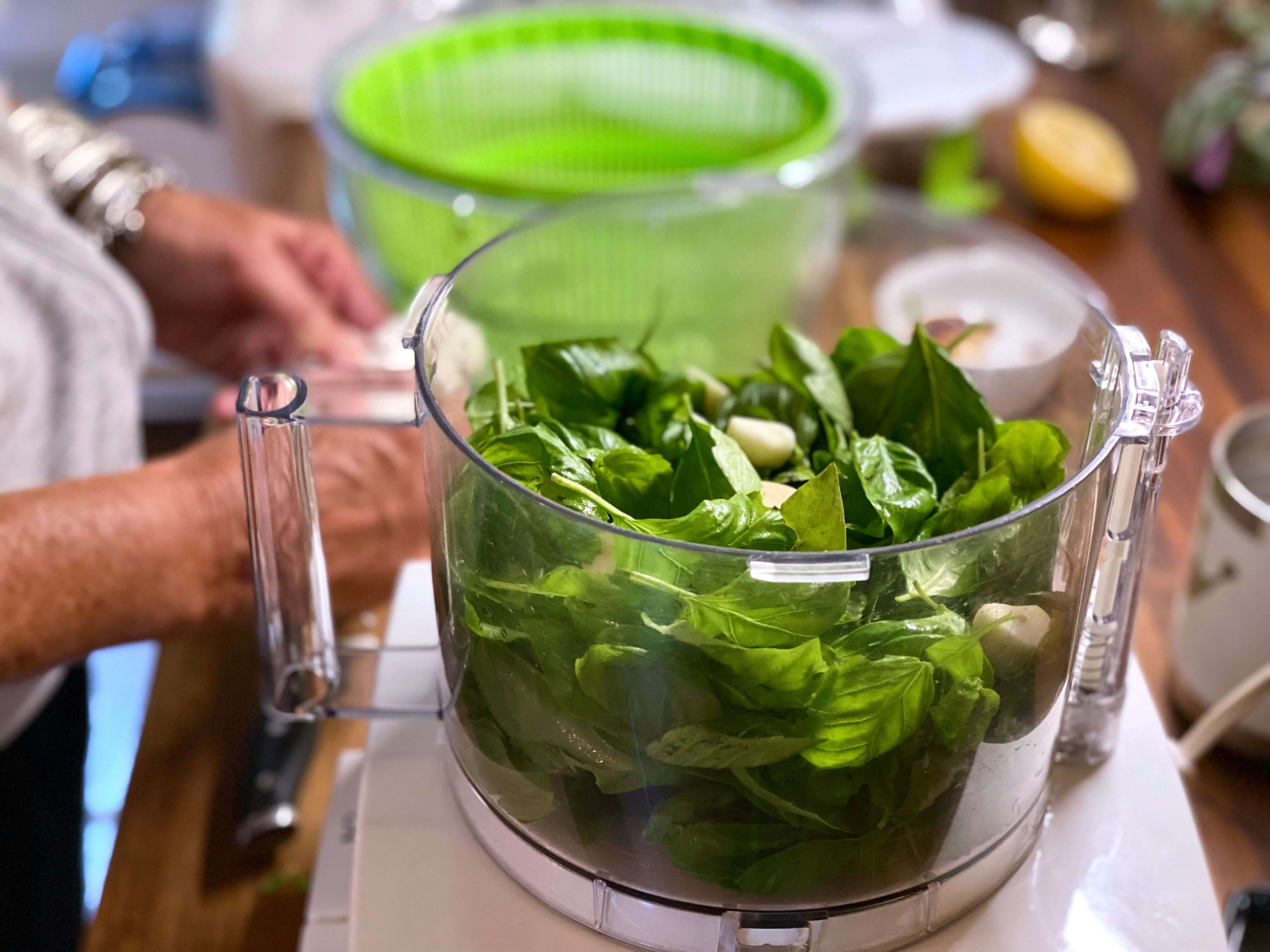 Bringing Joy Back into the Kitchen
Bringing Joy Back into the Kitchen
Living with a disability doesn’t mean giving up your independence or your love of cooking; it simply involves adapting your space to suit you.
At Tenura, we believe that safety, comfort, and confidence are inextricably linked. Whether you’re preparing a hearty meal, carrying a hot drink, or simply enjoying breakfast, our non-slip products are designed to support your independence and well-being.
Next time you’re in the kitchen, take a moment to look around! Perhaps your chopping board could use some extra grip, or your floor might benefit from improved traction. Small tweaks can significantly enhance your safety, comfort, and enjoyment.
After all, the best recipes aren’t just about the ingredients — they’re about confidence, comfort, and a dash of independence.
Promoting Independent Living Through Smart Home Design
According to the Royal Society for the Prevention of Accidents (RoSPA), the home is the most common location for an accident. Falls are noted to be the most common of accidents, which can result in serious injury for anyone of any age, though the risk of falling increases as we get older. For seniors who wish to live independently in their own home, safety is essential for both minimising accidents and elevating quality of life. In the kitchen, innovative design solutions can minimise burns, slips, and falls. From the power of technology and lighting solutions to burn prevention, there is no shortage of options when aiming to elevate kitchen safety.
The Role of Efficient Lighting
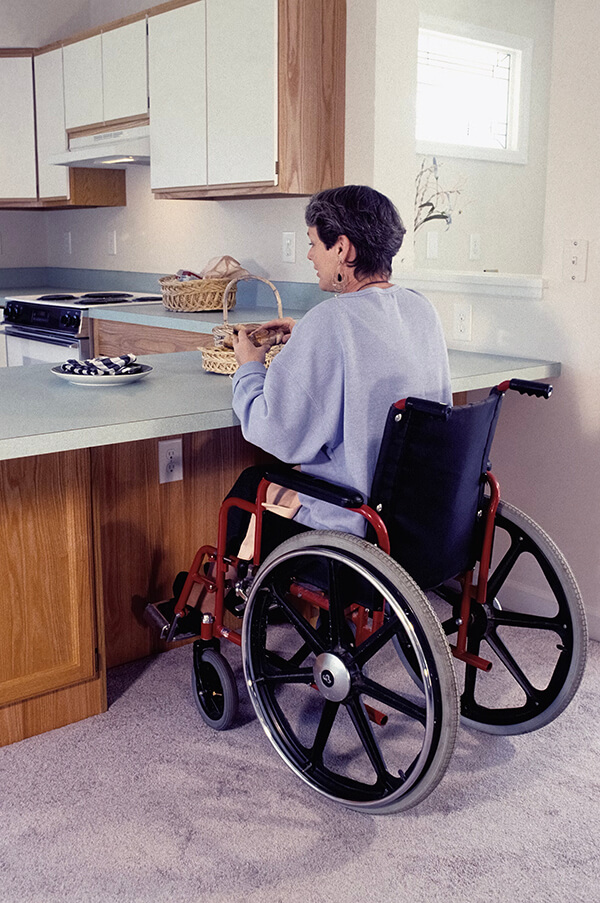 Modern kitchens have evolved to put safety at the forefront of design, with Shyamala Prabhu, Principal Architect at Aakruti Architects and Designers explaining it best. “The modern kitchen has evolved in a way to take care of all age groups. For example, appliances with a soft touch and soft closing are very safe even for senior citizens to use.” Prabhu points out the value of technology within the kitchen, noting that appliances that respond to voice can be particularly beneficial to older individuals who wish to maintain independence within their kitchen. Technology enables seniors to set a timer, operate smaller appliances (like a coffee maker), and even turn on lights with their voice or the touch of a button, making the modern kitchen immensely accessible for those with limited reach or those who experience a disability.
Modern kitchens have evolved to put safety at the forefront of design, with Shyamala Prabhu, Principal Architect at Aakruti Architects and Designers explaining it best. “The modern kitchen has evolved in a way to take care of all age groups. For example, appliances with a soft touch and soft closing are very safe even for senior citizens to use.” Prabhu points out the value of technology within the kitchen, noting that appliances that respond to voice can be particularly beneficial to older individuals who wish to maintain independence within their kitchen. Technology enables seniors to set a timer, operate smaller appliances (like a coffee maker), and even turn on lights with their voice or the touch of a button, making the modern kitchen immensely accessible for those with limited reach or those who experience a disability.
Additional design choices can further enhance the accessibility and safety of a kitchen. Lighting, for example, can go a long way when creating a kitchen that keeps safety at the forefront of the design. While it may sound relatively simple, it can enable individuals to see hazards like clutter and dropped items better. Efficient lighting can also allow an individual with poor eyesight to read a recipe better, which can further prevent any mishaps. In addition, specialised lighting solutions can illuminate those ‘always dark’ areas or corners of the room. Recessed or track lighting is often used when installing accent lighting. In the kitchen, accent lighting can make a significant difference when better illuminating the countertops throughout the day and night. Drawer lighting can also make a difference, especially when it comes to cluttered drawers or containing sharp utensils.
Proper lighting can also supplement smart organisational strategies, making favourite products more accessible and visible. For example, products geared towards safety and independence in the kitchen — like Anti-Slip Cutlery Grips or Antimicrobial CupCaps can easily become lost or misplaced in the kitchen. A designated drawer with lighting or even a small basket on the counter, however, can be illuminated for easy access while providing the items with a designated place. The same can be said when keeping practical items like Anti-Slip Cup Holders and Anti-Slip Coasters within reach, making a nighttime tea much safer and accessible.
From Burn Prevention to Fire Safety
Burns are a common injury that can generally be avoided when considering kitchen safety. Innovative kitchen solutions, such as Extreme Super Grip Adhesive Mats, are ideal when carrying a tray of hot tea or soup. However, diving deeper into kitchen design can further prevent injury. For example, one Houzz article points out that keeping your microwave at counter height is best for your back, as it eliminates the need to bend or reach over your shoulders. This can also prevent injury when heating food, enabling you to grip plates and cups without spilling.
Non-slip floor mats can further add to burn prevention within the kitchen, especially when considering how often hot items, liquids, and food are shuffled about from countertop to stove. When choosing the right non-slip floor mat, it’s imperative to factor in comfort and safety, especially if you enjoy spending plenty of time in the kitchen. Slip-resistant anti-fatigue mats are a consideration when enhancing kitchen safety while supporting the back and feet. When it comes to the stove, installing high-heat limiting burner covers and an in-hood extinguisher that can contain a stove top fire are both significant considerations in addition to a kitchen fire extinguisher.
Encouraging Healthy Activities — the Kitchen Garden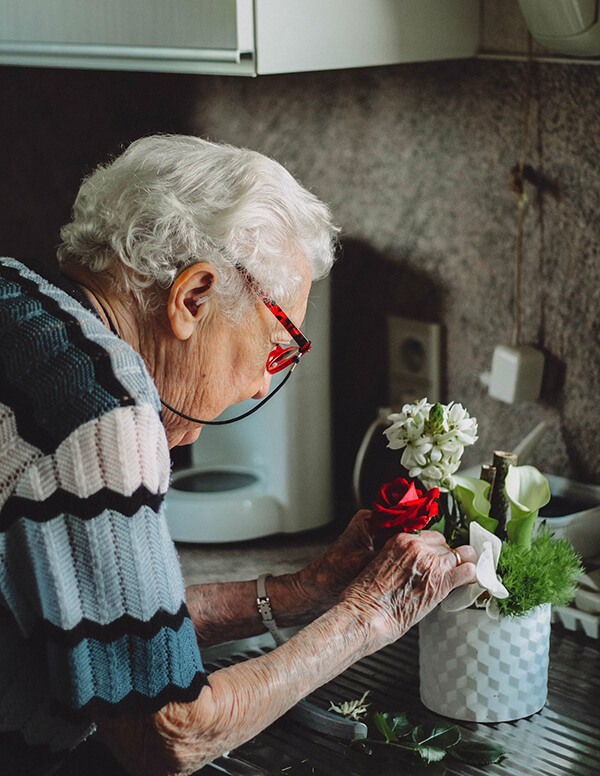
Integrating plants within the home can promote independent living, especially when outdoor gardening presents challenges (an uneven walkway, pain associated with kneeling, etc.). On the other hand, caring for indoor plants presents an excellent opportunity to stay active and engaged in a hobby. That said, even the presence of plants within the home brings to light an array of benefits. For example, plants in the home or office are scientifically proven to make you feel more comfortable, soothed, and natural, according to one study published in the Journal of Physiological Anthropology. Healthline goes on to identify several additional advantages of plants within the home, noting that they may boost productivity, provide therapeutic benefits, and may even help you recover from illness faster.
To accommodate seniors who experience health conditions that can make movement difficult (like arthritis), mindfully designing a safe and green kitchen is essential. One way to do this is by elevating individual plants or an indoor garden to prevent the need for bending down and minimise the risks of tripping and falling, while incorporating a nearby plant-care station (with arthritis-friendly shears, for example) can encourage regular and pain-free gardening. A straightforward solution is to keep a small herb garden on the counter, using a non-slip mat to secure the plants while keeping the greenery central to the kitchen sink for easy watering. The same idea can be applied should you choose to designate a drawer to gardening supplies. Tenura grip strips and rolls can also be helpful to store and organise supplies while guaranteeing that everything stays put.
Moving extra plants to the living room is another solution, especially if your kitchen doesn’t allow for the safe integration of plants. In smaller spaces, utilising vertical space is key in keeping plants off the ground in a way that minimises clutter. This is particularly important when keeping in mind the fact that according to the RoSPA, more accidents occur in the lounge or living room than anywhere else in the home. With that in mind, a macrame plant hanger is an excellent solution and can even be made right from home with the help of a kit. A shelving structure is another great way to confine the plants to a specific indoor gardening area while minimising the chances of tripping over anything.
Safety is a must when trying to maintain independence at home as we age. The kitchen is just one area of the home that can result in cuts, burns, and other injuries, highlighting the importance of smart home design. Simple solutions such as proper lighting and the safe integration of hobbies offer several options for those looking to enhance safety at home.
Improving Device Grip with Aqua Safe Bath Stickers
In an age where technology plays a significant role in daily life, individuals with mobility challenges, arthritis, or reduced grip strength often find it difficult to use electronic devices safely and comfortably. Whether it’s holding a phone, operating a tablet, or using a remote control, devices can easily slip from your hands or become difficult to manage. Our Anti-Slip Bath and Shower Stickers offer a simple yet effective solution to improve grip on various electronics and devices.
Why Anti-Slip Stickers are Ideal for Electronics
Our Aqua Safe stickers are made from a strong, non-abrasive material, making them perfect for adding a secure grip to devices without damaging them. They are gentle on bare skin, which is crucial for those with arthritis or reduced hand strength. Adding these anti-slip stickers to electronics can enhance grip strength, reduce the risk of dropping devices, and make them easier to handle, especially for those with physical challenges.
The Benefits for Those with Arthritis and Mobility Struggles
Many small but frustrating challenges can make technology feel less accessible. That’s why our anti-slip stickers are a practical solution, providing the extra grip needed to secure any device. This added stability helps make the digital world more navigable, reducing the worry and stress of accidental drops and adding greater control.
A Simple Solution
Our Stickers come in 200mm x 20mm strips or 40mm diameter circles, making them adaptable for any device. You can easily customise their placement for the best grip. Their strong self-adhesive backing ensures they stay securely in place without needing constant adjustments.
Unlike traditional non-slip pads, Tenura stickers are made from non-abrasive material, so they will not scratch or damage delicate electronics. They also offer a much cleaner solution than other grip aids. They are designed to be waterproof and durable, able to withstand varying temperatures, ensuring they continue to provide excellent grip for extended periods.
Stylish, Functional Protection
Not only do they improve the safety and functionality of electronics, but they also blend seamlessly into their design. Available in transparent and white options, the stickers won’t interfere with the aesthetic of your devices, making them both practical and stylish. With a wide variety of sizes, you can tailor the stickers to fit the needs of your devices without compromising their appearance.
A Small Addition That Makes a Big Difference
In a world where staying connected is more important than ever, our product offers a simple yet powerful way to make everyday tech more accessible and safer to use. Whether you're living with arthritis, reduced grip strength, or other mobility challenges, these discreet stickers provide added confidence, control, and comfort without compromising the look or feel of your devices. It’s a small change that can have a meaningful impact on daily life.
Travelling Abroad as an Older Person
Travelling in your later years is not only possible but incredibly rewarding. Whether it's experiencing new cultures, revisiting familiar places, or simply enjoying some well-deserved rest, the benefits of travel are vast. Studies show that travel can boost mental and physical health, foster a sense of independence, and create lasting memories. But it's natural to have concerns about comfort, mobility, and health while on the go. In this guide, we'll explore how you can address these issues and make your trip smoother and more enjoyable.
Planning Your Trip
 Choosing the Right Destination
Choosing the Right Destination
When selecting a destination, it’s essential to choose places that are accessible and senior-friendly. Look for destinations with good healthcare options, reliable infrastructure, and mild climates. A place with easily navigable streets, elevators, and transport systems will make your travel experience much more enjoyable. Consider destinations that cater to older travellers, such as resorts, cruises, or cities known for their accessibility.
Travel Insurance
No one plans for things to go wrong, but accidents and illnesses can happen, especially while travelling abroad. That's why it's important to purchase comprehensive travel insurance that covers unexpected medical costs, cancellations, and emergencies. Be sure the policy includes any pre-existing health conditions you may have.
Consulting with Your Doctor
Before you travel, make an appointment with your doctor to discuss any health concerns, medications, or vaccinations you may need for your trip. Carry copies of your prescriptions and medical records, particularly if you have ongoing health conditions.
Packing Tips
Health and Safety Supplies
Pack extra medication (in its original containers), a first-aid kit, and any mobility aids you might need while travelling. If you use medical devices like a hearing aid, CPAP machine, or an oxygen tank, ensure you have the necessary accessories and backup supplies.
Comfortable Clothing
Wearing the right clothing is essential for comfort during long flights or sightseeing excursions. Opt for lightweight, breathable clothes and comfortable shoes that support long walking.
Useful Tenura Products
Packing some simple yet effective aids can make a big difference. Tenura products like anti-slip mats are a must-have for hotel rooms or vacation rentals to prevent accidents. Tenura's grip aids can also help you carry luggage or use utensils, making it easier to enjoy your meals without worrying.
Staying Safe Abroad
Managing Health Issues While Abroad
Maintaining your health on the go is key. Stay hydrated, eat balanced meals, and avoid overexerting yourself. Don’t hesitate to rest if you feel tired and listen to your body. It's also a good idea to carry a list of emergency contacts, including the nearest hospitals or clinics to your accommodations.
Staying Safe
Always be mindful of your surroundings when you’re in a new city. Avoid risky areas and try to travel with a group whenever possible. Keep your valuables secure and carry a copy of your passport and travel documents in case anything goes missing.
Emergency Preparation
Accidents and emergencies can happen anywhere, so it’s essential to be prepared. Carry a list of emergency numbers for your destination (like the local embassy or consulate), and make sure your loved ones know your travel plans. If you have health concerns, inform the people you're travelling with and share any specific medical needs you may have.
Adapting to New Environments
Cultural and Environmental Adjustments
Adjusting to different time zones and local customs can take some time, so try to give yourself a break. Stay active but don’t push yourself too hard—take regular breaks and enjoy your surroundings leisurely. If you feel jet-lagged, take short naps or spend some quiet time to restore your energy.
Mobility and Accessibility
It’s important to ensure that your accommodations and transportation options are accessible. Look for hotels that offer accessible amenities, such as lifts, wide doorways, and walk-in showers. If you’re using a wheelchair or walker, ensure the destination has ramps or accessible entrances.
Enjoying New Experiences
Embrace Local Activities
Don’t hesitate to explore new experiences but choose activities that are gentle on your body. Scenic walks, cultural tours, and sightseeing cruises are great ways to enjoy a destination at your own pace.
Taking Time to Rest
It’s important to pace yourself, especially if you’re travelling to a busy destination. Schedule time for relaxation between sightseeing or adventures, whether it’s enjoying a quiet café or relaxing in your hotel room. Remember, travel is meant to be enjoyable, not exhausting!
With thoughtful planning, the right precautions, and a few helpful tools, you can explore the world with confidence and ease. Whether you’re venturing somewhere new or revisiting a favourite place, age should never be a barrier to adventure!
Local Area Activities for the Elderly
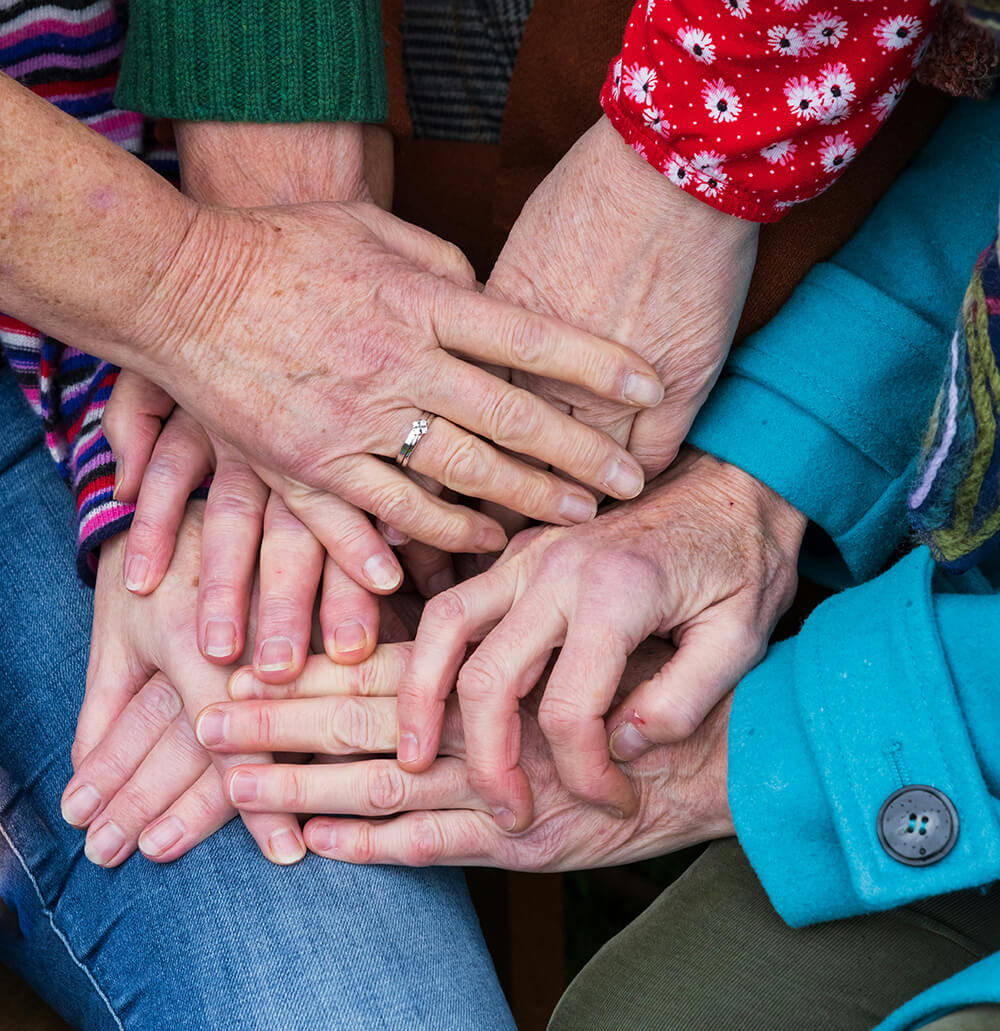 Staying active and engaged in the community is essential at any stage of life, but it becomes even more valuable as we age. It’s about staying physically healthy, mentally sharp, and socially connected. Whether it’s joining a hobby group, attending community events, or volunteering, getting involved in local activities can bring a renewed sense of purpose and improve overall well-being. In this blog, we explore local communities and the many benefits of involvement for the elderly and how small steps toward engagement can lead to a happier, healthier lifestyle.
Staying active and engaged in the community is essential at any stage of life, but it becomes even more valuable as we age. It’s about staying physically healthy, mentally sharp, and socially connected. Whether it’s joining a hobby group, attending community events, or volunteering, getting involved in local activities can bring a renewed sense of purpose and improve overall well-being. In this blog, we explore local communities and the many benefits of involvement for the elderly and how small steps toward engagement can lead to a happier, healthier lifestyle.
The Joy of Getting Involved: How Activities & Classes Enrich Life
Getting involved in local activities, clubs, and classes is one of the best ways to bring fun, purpose, and connection into everyday life. Whether it’s joining a book club, learning a new craft, taking up dance, or volunteering, participating in group activities keeps life exciting and fulfilling. Here are some of the amazing benefits:
1. Keeps Your Mind Sharp & Engaged
Learning something new—whether it’s a language, musical instrument, or creative hobby—keeps the brain active and engaged. This helps improve memory, problem-solving skills, and overall cognitive function while making learning an enjoyable and social experience.
2. Builds Meaningful Friendships
One of the greatest joys of joining a class or group is the friendships you make along the way. Shared interests create strong connections, and having a regular social circle reduces feelings of loneliness while adding more laughter and joy to life.
3. Boosts Happiness & Confidence
Trying something new and seeing yourself improve brings a fantastic sense of accomplishment. Whether it’s mastering a new skill or simply enjoying a fun activity, taking part in group sessions boosts self-esteem, positivity, and overall happiness.
4. Reduces Stress & Lifts Your Mood
Participating in enjoyable activities is a fantastic stress-reliever. Creative outlets like painting, music, or gardening help relax the mind, while social interactions and shared laughter naturally boost mood and reduce anxiety.
5. Creates Lifelong Memories & Experiences
Every new class, hobby, or group meeting brings the chance to create new memories, stories, and experiences. From learning to bake a new dish to performing in a local play, these moments add colour and excitement to life.

Local Communities
What is U3A?
The University of the Third Age (U3A) is a vibrant, community-led movement that offers lifelong learning and social opportunities for people in their later years. Designed for those who are retired or semi-retired, U3A provides a wide range of activities, from educational courses and creative workshops to social events and fitness groups. Unlike traditional universities, U3A focuses on peer-to-peer learning, where members share their knowledge and skills in a friendly, informal setting. With local groups across the UK and internationally, U3A is a fantastic way for older adults to stay mentally active, make new friends, and continue exploring their interests.
U3A aims to be as accessible as possible – classes are held in various locations. Groups meet either at somebody’s home, or in a room in a local library, church or community centre. U3A also has the option of joining virtually with people all over the world.
What is The Women’s Institute (WI)?
The Women's Institute is more than just a social club; it’s a thriving community that offers a wealth of benefits, particularly for elderly members. Joining the WI provides older individuals with an opportunity to stay socially connected, reducing the risk of loneliness and isolation—two key concerns in later life. With a diverse range of activities, including crafts, cooking, educational talks, and charity work, members can continue to learn new skills and stay mentally engaged. The WI also promotes physical well-being through group activities and events, encouraging members to stay active. Additionally, being part of a supportive and like-minded community can boost confidence, provide a sense of purpose, and create lasting friendships. Whether it's sharing stories over a cup of tea or contributing to local projects, the WI empowers elderly members to remain active, valued, and connected in their communities.
What are Rotary Clubs?
Rotary Clubs are global service organisations that bring together individuals who are passionate about making a difference in their communities. While Rotary is open to all ages, it offers significant benefits for elderly individuals looking to stay engaged, active, and socially connected. Many retirees join Rotary to continue using their skills and experience in meaningful ways, whether through charity work, mentoring, or organising community projects. Regular meetings provide opportunities to connect with like-minded people, reducing loneliness and fostering friendships. Rotary also promotes lifelong learning through guest speakers and workshops, keeping members mentally stimulated. For those who prefer a more social focus, Probus Clubs, an extension of Rotary, cater specifically to retired individuals by offering social events, trips, and networking opportunities without service commitments. Joining Rotary allows elderly members to stay involved and give back to their communities while enjoying a fulfilling and active lifestyle.
Find What Brings You Joy!
Whether it’s joining a book club, signing up for an art class, or participating in a local walking group, getting involved in activities enriches life in many ways. It’s all about having fun, meeting wonderful people, and making the most of every moment! So why not give something new a try? You might just discover a new passion that brings endless joy and fulfilment!
Heartfelt & Accessible Valentine’s Day Activities for the Elderly
Valentine’s Day is a wonderful opportunity to celebrate love and appreciation with those around us. Whether spending time with a partner, family, friends, or simply indulging in well-deserved self-care, there are many accessible ways to make the day special. Engaging in creative and heartwarming activities can enhance joy, spark cherished memories, and foster a sense of connection. From crafting handmade cards to baking delicious treats, here are some thoughtful and inclusive ways you can celebrate Valentine’s Day with ease and enjoyment.
1. Valentine’s Day Card Making - A Personal Touch
Handmade Valentine’s cards add a unique, personal touch to the holiday. Whether you’re making a card for a spouse, a dear friend, or a grandchild, this activity is both enjoyable and accessible with a few adaptations:
Use anti-slip mats – Tenura’s non-slip table mats keep paper and supplies steady, preventing slips while cutting or writing.
Adaptive grip tools – Tenura’s grip strips and rolls can be applied to markers or pens for a more comfortable grip.
A handmade Valentine’s card is a simple yet meaningful way to spread love while engaging in a creative and relaxing activity. There are so many ideas to choose from. You can even add embellishments and accessories, such as ribbons or lace, to enhance the personalisation.
2. Baking Sweet Valentine’s Treats - Made Easier
Baking is a heartwarming way to celebrate Valentine’s Day, filling the home with delicious aromas and nostalgia. Whether making heart-shaped cookies, cupcakes, or a simple sponge cake, here are some accessibility-friendly baking tips:
Non-slip kitchen aids: Tenura non-slip mats can be placed under mixing bowls to keep them stable while stirring, and jar openers can help open ingredient containers.
Bottle & Jar Openers– Tenura’s Bottle and Jar Openers can be a real time saver in the kitchen, reducing strain and difficulty so that you can thoroughly enjoy your Valentine's activities
Simple recipes – Look for easy-to-follow, minimal-prep recipes like no-bake cheesecakes or soft sugar cookies that don’t require excessive kneading or mixing.
Baking together can be a joyful bonding activity, whether with a partner, a friend, or even grandchildren who love decorating cookies with icing and sprinkles!
3. Simple DIY Valentine’s Decorations - Festive & Fun
Decorating for Valentine’s Day doesn’t have to be complicated! A few easy crafts can brighten up the space and bring joy:
Paper heart garlands – Using pre-cut paper hearts or crafting your own, simply string them together to create a festive garland!
Painted flower pots – Decorate small plant pots with heart designs and gift them with flowers or herbs. Using grip-enhancing brushes or wide-handled sponges makes painting more accessible.
Fabric crafts – Using felt or fabric scraps, you can make small heart-shaped pillows or scented sachets filled with lavender for a thoughtful homemade gift.
Crafting is not just fun—it also stimulates creativity and can be a great way to spend quality time with loved ones.
4. Valentine’s Day Memory Sharing - Reminiscing with Love
Valentine’s Day is also a time to reflect on cherished memories. A wonderful way to honour past and present love is by sharing stories.
Scrapbooking special moments – Collect old photos, letters, or memorabilia to create a Valentine’s scrapbook. Use Tenura cutlery grips to write letters and notes.
Memory-sharing game – Share funny or romantic stories with family, reliving past Valentine’s Days together and sparking nostalgia and joy.
Valentine’s Day is about celebrating love in its many forms, and with a few thoughtful adaptations, everyone can participate in the festivities. Whether crafting, baking, decorating, or reminiscing, these accessible activities allow everyone to enjoy the holiday in a meaningful and joyful way. The most important part of the celebration is the love and connection shared, making each moment special. No matter how you spend the day, embracing creativity and togetherness will ensure a genuinely heartfelt Valentine’s Day.
Nutrition and Health in the Context of Disability
Good nutrition is the foundation of a healthy, fulfilling life, but for individuals with disabilities, maintaining a balanced diet often requires overcoming unique hurdles. From physical limitations to sensory or cognitive challenges, these barriers can make something as simple as preparing a meal feel overwhelming. Yet, proper nutrition is essential—it fuels the body, supports independence, and reduces the risk of secondary health complications.
The good news? With the right tools, strategies, and support, these challenges can be transformed into opportunities for empowerment and growth. Whether this is with adaptive aids like Tenura products to make meal prep more accessible or leaning on caregivers and support networks for guidance, there are ways to ensure that everyone can enjoy the benefits of a nutritious diet. In this blog, we’ll explore how to navigate the intersection of nutrition, health, and disability to create a path toward better well-being for all.
Impact of Disabilities on Nutritional Needs
Disabilities can make even routine tasks like cooking and eating challenging. For some, physical limitations may restrict mobility, making shopping for groceries or preparing meals difficult. Cognitive or sensory impairments can add complexity, affecting planning and decision-making.
This is where Tenura products can make a real difference. Non-slip mats keep plates and kitchen tools stable, preventing spills, while Jar Openers and Cutlery Grips help overcome issues with reduced grip strength. These tools not only make meal preparation safer and more manageable but also empower individuals to regain some control and independence in the kitchen.
However, the challenges go beyond the kitchen. Barriers like store accessibility, limited adaptive cooking resources, or financial constraints can lead to unhealthy eating patterns or skipped meals. Addressing these obstacles with practical solutions can significantly improve dietary habits and health outcomes.
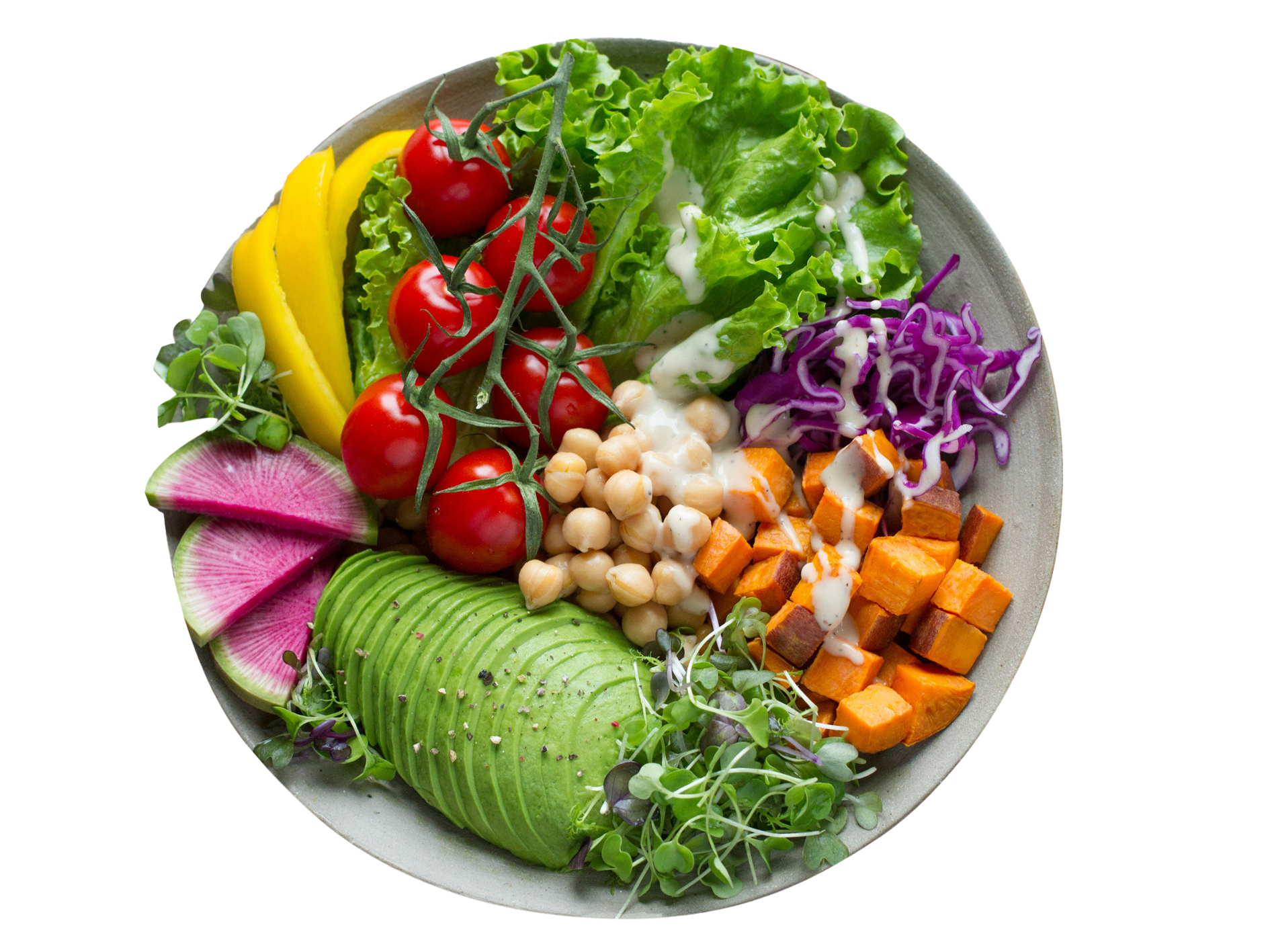 Strategies for Better Nutrition
Strategies for Better Nutrition
The path to better nutrition begins with simple, practical strategies tailored to individual needs. Meal planning can reduce stress and ensure balanced diets, while adaptive cooking tools and freezer-friendly meals save time and energy. Fortifying meals with nutrient-dense ingredients and preparing foods that are easier to chew or swallow can address specific dietary concerns.
Healthcare professionals, such as dietitians or occupational therapists, are invaluable allies in this journey. They can offer tailored advice, recommend adaptive tools, and create personalised nutrition plans that cater to unique needs. Collaborating with professionals ensures that nutritional solutions are both practical and sustainable.
The Role of Caregivers and Support Networks
Caregivers and support networks are essential in helping individuals with disabilities maintain proper nutrition and overall well-being. They assist with meal planning, grocery shopping, and food preparation, ensuring dietary needs are met. Tenura products, like Cup Holders and Cutlery Grips, can further support caregivers by simplifying tasks and promoting safe, efficient assistance. Encouraging adaptive tools fosters greater independence, allowing individuals to participate actively in their meals where possible. A strong support network also provides emotional encouragement, helping to establish positive, sustainable eating habits.
To conclude...
Nutrition in the context of disability is about more than food; it’s about creating systems and environments that enable health, independence, and dignity. With the right tools, strategies, and support, individuals with disabilities can overcome barriers to good nutrition and enjoy a higher quality of life. Together, we can ensure everyone has access to the resources they need to thrive—because good nutrition should be accessible to all.
Celebrating Purple Tuesday 2024
Purple Tuesday is a global social movement that occurs annually. It aims to improve accessibility and inclusivity for disabled customers by encouraging businesses to commit to at least one new action each year to enhance their customer experience. This year's celebration will take place on November 12th, with events scheduled across various countries, such as the UK, USA, UAE, Malaysia, and Pakistan.
Purple Tuesday aims to continue its vast growth following a 2023 campaign in which over 6,500 organisations participated, reaching millions and raising awareness about the importance of accessible and inclusive customer service.
Why is Purple Tuesday Important? 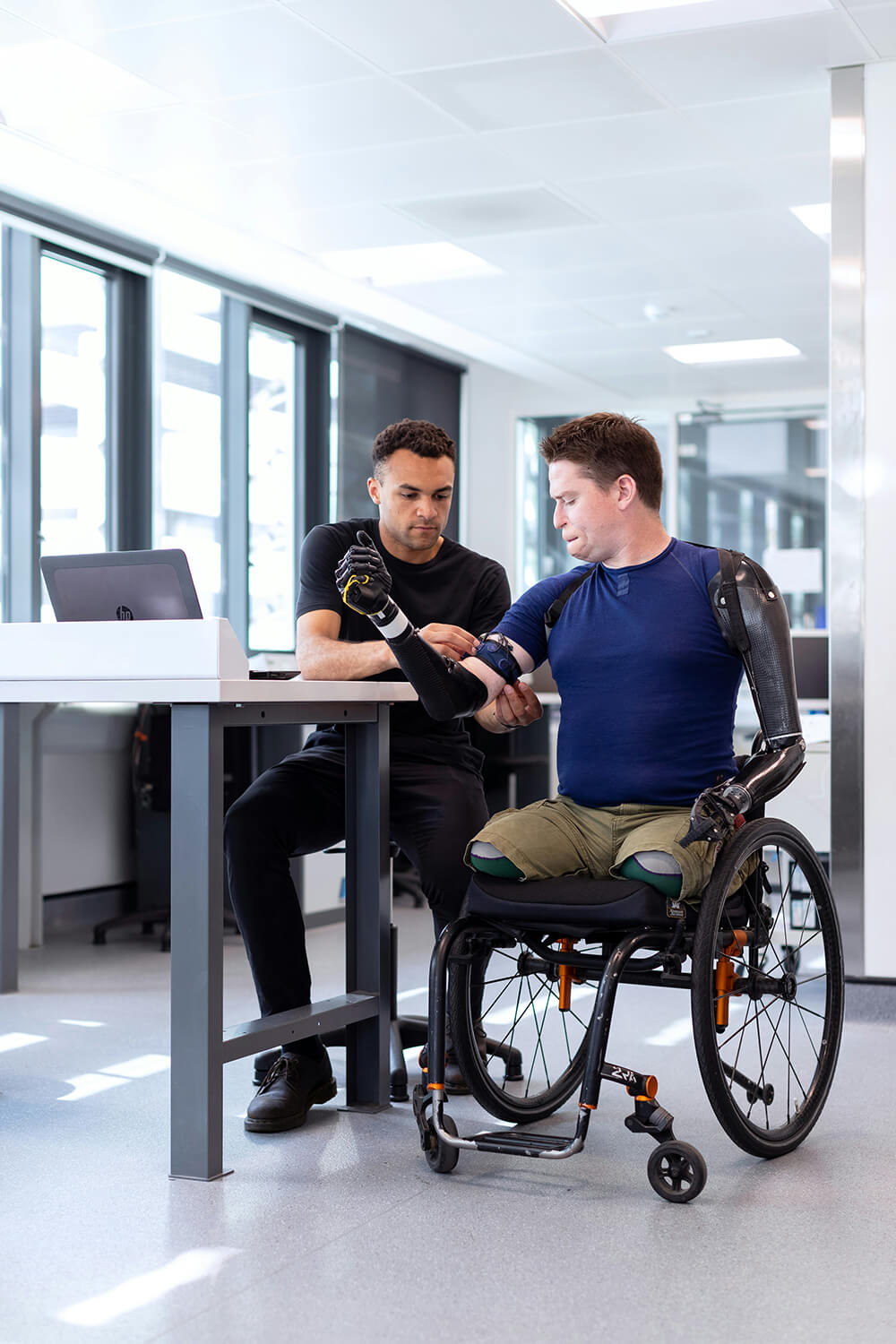
The Purple Tuesday movement is important for many reasons. However, the main reason mentioned by the organisation itself is ‘For disabled people and their families’ because receiving a poor customer experience gives an overriding sense of being unwanted and leads to a firm perception that disabled customers are not valued on the same level as other customers. This doesn’t only impact the individual themselves but their families, too. Additionally, it is also important for businesses and companies to cater to these needs because 70% of disabled individuals will not return to an organisation after receiving poor customer service and it is not affordable for such businesses to ignore the needs of the world’s largest minority group (24% of the overall population), but more importantly, businesses should strive to ensure they are building a sustainably inclusive corporation that values each and every one of its customers.
How Technology Can Make A Difference
Technology can significantly enhance the customer experience for disabled individuals by creating accessible, user-friendly interactions that account for various needs. This includes digital accessibility tools such as screen readers, text-to-speech, and voice recognition. These tools allow for more straightforward navigation of digital content and enable customer independence by improving website interactions. This also includes mobile apps optimised with accessibility features, such as extensive text options, high-contrast modes, and voice commands, which are essential for visually impaired users. By implementing these technologies, businesses can improve customer engagement, build loyalty, and cater inclusivity to a broader audience, making accessibility integral to the customer experience.
If you are also a business looking to participate in the Purple Tuesday movement, you can engage with them by making accessibility commitments, participating in awareness events, and simply using the #PurpleTuesday hashtag to share your stories and improvements.
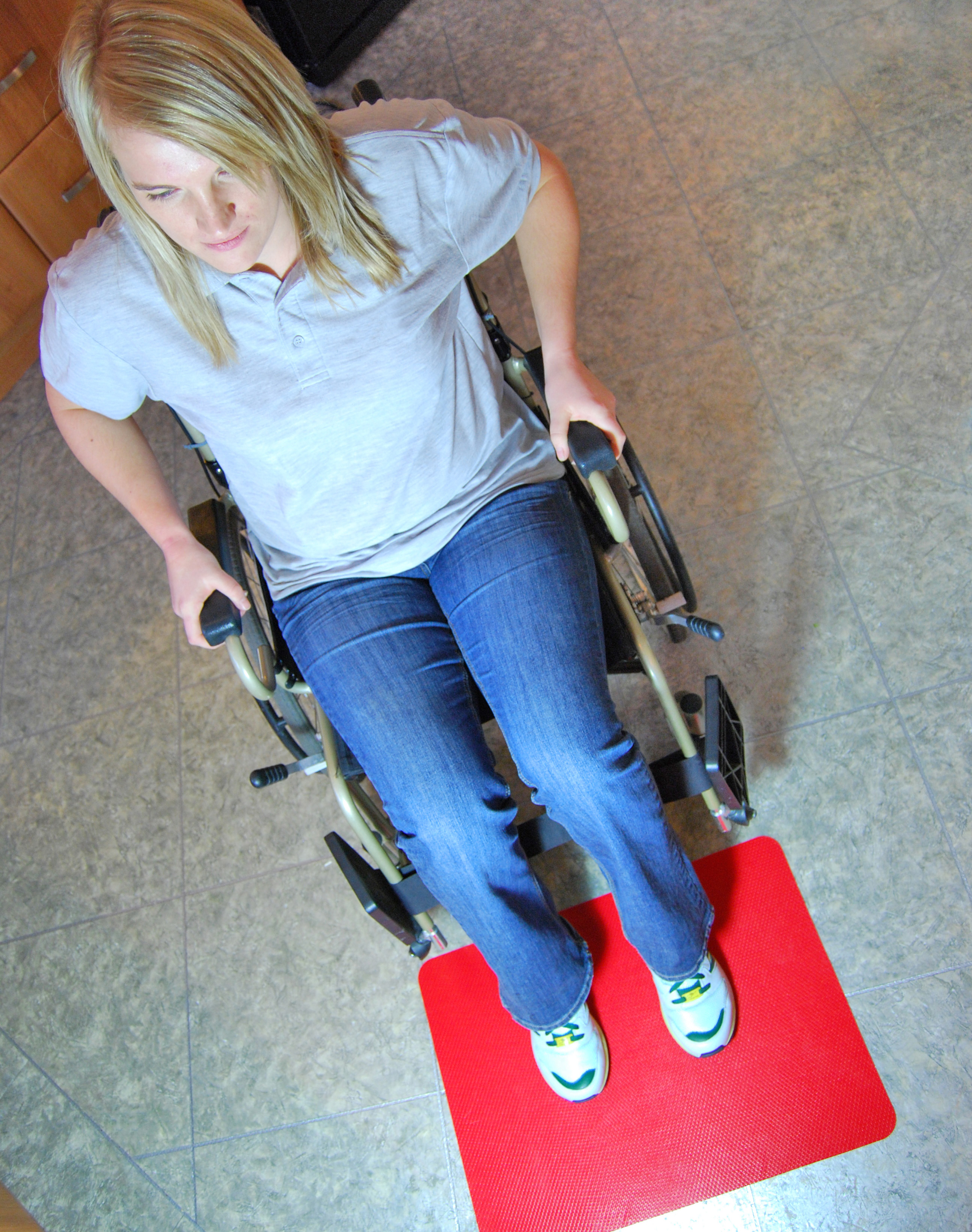 Tenura's Role
Tenura's Role
At Tenura, we are dedicated to enhancing accessibility through innovative, user-focused products that make daily tasks more manageable and comfortable. We recognise the importance of creating solutions that address diverse needs, empowering individuals to maintain independence in their daily routines. Our designs are developed with thoughtful details and practical functionality, ensuring ease of use for everyone, including those with limited mobility or grip strength. From anti-slip mats to adaptable grips, Tenura products aim to support seamless, inclusive living, reflecting our commitment to accessibility and quality.
We are inspired by these principles and hold them close. Because of this, our team has been working on something new that could add even more comfort and support to our product line.
Key Reflections
Inclusivity for disabled customers is more than a business strategy; it’s a profound opportunity to make everyone feel seen, valued, and welcomed. Imagine a world where no one has to struggle to enter a building, access a website, or interact with a service simply because of a disability. For people with disabilities, everyday activities can sometimes feel like a series of barriers, but when businesses address accessibility, they offer more than convenience—they’re extending a genuine invitation to belong. Movements like Purple Tuesday showcase how minor adjustments, like accessible entryways or assistive technologies, can have a huge impact, making the world friendlier and more open.
Stay informed on important awareness days and discover more ways to support accessibility and inclusivity! Subscribe to the Tenura newsletter for updates, tips, and exclusive content delivered right to your inbox.
World Occupational Therapy Day: Celebrating OT's Role in Empowering Lives | Tenura
On October 27th, we celebrate World Occupational Therapy Day, a day dedicated to recognising the remarkable contributions of occupational therapists across the globe. Occupational therapy plays an important role in improving the lives of individuals by promoting independence, improving the quality of life, and helping people engage in meaningful daily activities. From children needing developmental support to elderly individuals seeking to maintain independence, OTs tailor their approach to meet each person's unique needs. At Tenura, we proudly support the OT community by providing innovative daily living aids that help therapists and their clients succeed.
What is Occupational Therapy?
Occupational therapy is a client-centred profession that enables individuals to participate in everyday tasks that are important to them. Whether helping a child learn fine motor skills for school, aiding an adult in recovering from injury or supporting seniors in maintaining their autonomy at home, OTs develop personalised strategies based on each individual's circumstances. The holistic approach of OT emphasises performing tasks and enhancing the meaning and satisfaction derived from engaging in these activities, promoting a greater sense of purpose and fulfilment.
The Impact of Occupational Therapy
World Occupational Therapy Day reminds us of occupational therapy's profound impact on individuals who face physical, emotional, or cognitive challenges. For many, the simple ability to carry out daily activities can be life-changing. Occupational therapists work closely with clients to set personalised goals, whether regaining the ability to cook after an injury or maintaining mobility in the face of ageing. Through tailored care plans, OTs help individuals take control of their lives and navigate their unique challenges. Research has shown that occupational therapy significantly enhances life satisfaction and independence, focusing on assisting individuals to participate in meaningful activities that bring them joy and self-worth.
Celebrating Occupational Therapy Day
The celebration of World Occupational Therapy Day is an opportunity to raise awareness and honour the achievements of occupational therapists and the individuals they help. Many communities organise events, workshops, and seminars to promote the profession and its impact. Social media campaigns allow people to share their stories and experiences with occupational therapy, using hashtags like #WorldOTDay to spread awareness and celebrate the profession's impact. You can also support occupational therapy initiatives by getting involved in your community, participating in local events, or advocating for better access to OT services.
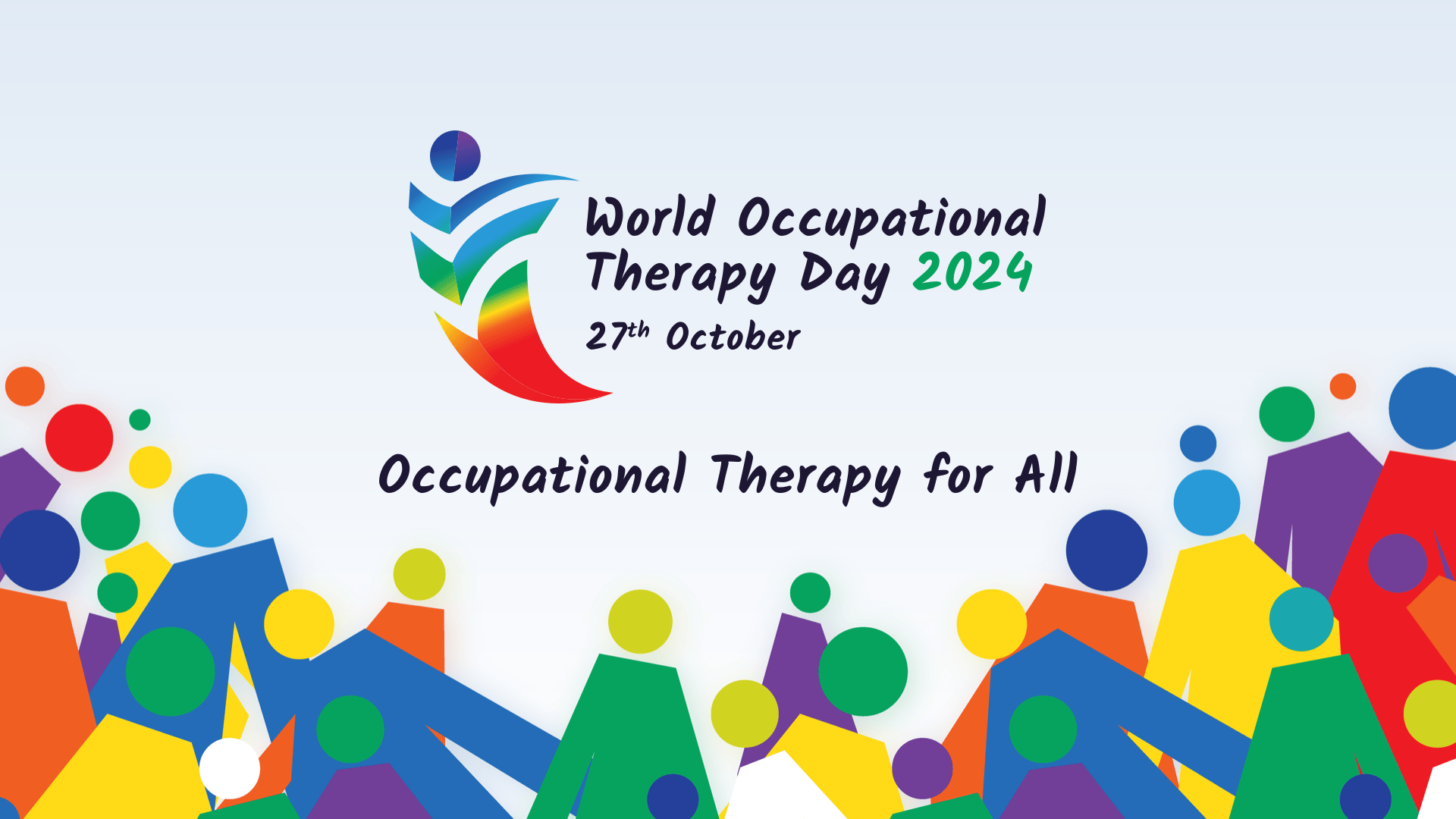
How Tenura Supports Occupational Therapy
At Tenura, we see firsthand the transformative power of occupational therapy. Take the story of John, for example. After suffering a severe injury, John struggled with basic tasks like dressing and cooking. With the guidance of his occupational therapist and the help of Tenura's daily living aids, John regained his independence and confidence. Our adaptive products, including grip aids and non-slip mats, played a crucial role in helping him recover and manage everyday tasks more effectively. Similarly, Emily, a young girl with developmental challenges, made remarkable progress thanks to her occupational therapist. Using sensory products from Tenura, Emily improved her motor skills, making participating in classroom activities easier and boosting her confidence.
Tenura’s Role in Supporting OTs and Their Clients
At Tenura, we understand occupational therapists' essential role in supporting their clients' progress. That's why we're committed to providing products that assist in the rehabilitation and daily living of individuals who face mobility and dexterity challenges. Our adaptive tools, such as our grip aids and non-slip products, are designed to support individuals in performing daily tasks more efficiently and confidently. Tenura's products align with occupational therapy goals by promoting independence and helping people achieve greater control over their daily activities, whether holding utensils, gripping surfaces or carrying out self-care routines.
Customised Solutions for Unique Needs
Occupational therapy is not a one-size-fits-all approach, nor are Tenura's products. We collaborate with occupational therapists to ensure our aids meet the unique needs of their clients, making daily life more manageable. By incorporating therapist input, we can continuously innovate and provide practical, user-friendly tools that enhance therapy sessions and everyday use. From elderly individuals managing arthritis to children with sensory challenges, Tenura's solutions are designed to empower people of all ages and abilities.
As we celebrate World Occupational Therapy Day, let's take a moment to appreciate the incredible work of occupational therapists and the difference they make in people's lives. At Tenura, we are honoured to be part of this journey by providing practical, innovative daily living aids that support independence and improve the quality of life. Together, with the help of OTs, we can empower individuals to live their best lives.
Let's celebrate the power of occupational therapy and reflect on how we can further support the profession. Whether participating in local initiatives, sharing stories, or providing resources, World Occupational Therapy Day reminds us that with the right tools and guidance, we can help make a difference in the lives of individuals and their communities.
Regulatory Updates and Professional Standards
In the ever-evolving landscape of health and therapy, keeping up with the latest regulations, standards, and best practices is crucial for professionals committed to providing the highest level of care. This is particularly true when it comes to the use of disability aids. In this blog, we'll explore some recent regulatory updates, emerging professional standards, and best practices in the industry that you need to know.
The Importance of Staying Updated
Regulatory bodies continuously update their guidelines to ensure that healthcare products, including disability aids, meet the highest safety and efficacy standards. For professionals in the health and therapy sectors, staying informed about these changes. Compliance ensures that your products and services are safe, reliable, and practical, crucial for patient well-being and trust.
Recent Regulatory Updates
Post-Brexit CE Marking Adjustments
The UK's departure from the EU has led to significant changes in the regulatory landscape, particularly concerning CE marking. Now, disability aids in the UK require the UKCA marking (UK Conformity Assessed) to be sold legally. This shift necessitates that manufacturers and distributors of disability aids ensure their products comply with the new UK standards. Professionals need to verify that the aids they recommend or provide are properly certified.
 ISO Standards for Assistive Products
ISO Standards for Assistive Products
The International Organization for Standardization (ISO) periodically revises its standards for assistive products, ensuring they meet the latest technological advancements and safety requirements. The ISO 9999 classification, for example, is regularly updated to include new categories of assistive devices and refine existing classifications. Staying informed about these changes can help professionals recommend the most current and effective products to their clients.
Health and Care Professions Council (HCPC) Guidelines
The HCPC, which regulates health and care professionals in the UK, has updated its guidelines to emphasise the importance of continuous professional development in line with new standards and practices. For those specialising in occupational therapy, physiotherapy, or any field involving disability aids, adhering to these guidelines ensures that your practice remains aligned with the latest professional standards.
Emerging Best Practices in Disability Aids
Emphasising Individualised Care
The trend towards personalised medicine has reached the realm of disability aids, with a growing emphasis on tailoring products to individual needs. This approach improves patient outcomes and aligns with regulatory expectations for patient-centred care.
Sustainable and Ethical Practices
Sustainability is key in manufacturing and using disability aids. Professionals should be aware of products made from eco-friendly materials and companies that prioritise ethical manufacturing practices. Not only does this align with broader societal goals, but it also resonates with increasing clients who are conscious of their environmental footprint.
Integration of Smart Technology
Integrating intelligent technology into disability aids is an exciting development, offering enhanced functionality and greater user independence. Professionals should familiarise themselves with the latest intelligent aids, from sensors that monitor usage patterns to apps that allow for remote adjustments, ensuring they can have the familiar solutions for their clients.
Keeping up with regulatory updates and professional standards is essential for any health or therapy professional who works with disability aids. By staying informed, you not only ensure compliance but also enhance the quality of care you provide to your clients. The landscape is constantly changing, but with a commitment to learning and adaptation, you can remain at the forefront of your field, providing the best possible support to those who rely on your expertise.